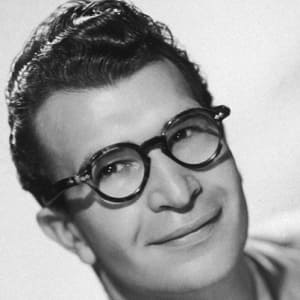
Joseph Bonaparte
Joseph Bonaparte was the older brother of Napoleon I, who made him king of Spain. He served as Spain’s king from 1808 to 1813.
Synopsis
Born Giuseppe Buonaparte in Corte, on the island of Corsica, on January 7, 1768, Joseph Bonaparte was the older brother of Napoleon I, emperor of France. During his brother's reign, Joseph was made king of Naples and Sicily (1806–08), and then king of Spain (1808–13). After Napoleon's defeat, Joseph moved to the United States, but spent his final years in Europe. He died in Italy in 1844.
Early Years
Joseph Bonaparte, the eldest brother of Napoleon Bonaparte, was born Giuseppe Buonaparte, in Corte, Corsica, on January 7, 1768. He was the third child of Carlo Buonaparte and Letizia Romolino, but the first to survive infancy. His family was middle-class, allowing him to receive a formal education.
After the French occupied Corsica, the family moved to the French mainland, where Joseph Bonaparte furthered his education. He later studied law in Pisa, Italy. In his late twenties, he settled in Marseilles and married Marie Julie Clary, the daughter of a wealthy merchant, on August 1, 1794. Over the course of their marriage they would have three daughters, two of whom survived into adulthood.
French Diplomat
Both Joseph Bonaparte and his younger brother, Napoleon, supported the French Revolution, with Joseph serving in the new government and Napoleon in the military. During the first years of the French Republic, Joseph served as a foreign diplomat, helping negotiate several treaties between the French government and other European powers, and served as a representative for Corsica in the Council of Five Hundred.
By 1799, Napoleon Bonaparte had reorganized the French government and established himself as head of the French Consulate. Over the next four years, Joseph Bonaparte again played a diplomatic role, helping negotiate the Treaty of Lunéville with Austria (1801) and the Treaty of Amiens with England (1802). In 1803, Napoleon's military ambitions severed diplomatic relations between France and England, and Joseph's efforts proved to be in vain.
King of Naples and Spain
Although Joseph Bonaparte held the ideals of his brother and served him as best he could, Napoleon's push for dominance in Europe eventually set the two men apart. Once Napoleon had consolidated his power, the two clashed on the issue of a successor. The dispute came to a head when Napoleon established himself as emperor and offered Joseph rule over Lombardy if he would his waive claim to succession, but he refused.
In 1806, Napoleon named Joseph Bonaparte king of Naples. During his brief reign, Joseph was able to make some progress bringing the backward country into the modern era by abolishing feudalism; introducing educational, judicial and financial reforms; and reforming the monastic orders of the Church. But he was never able to see these reforms to maturity, as his brother appointed him king of Spain a year later.
In 1807, Napoleon invaded Spain, replacing Charles IV with Joseph Bonaparte. Joseph reluctantly accepted this role and did all he could to win over the Spanish people: trying to learn the language, disciplining French troops when necessary and professing devotion to the Catholic Church. He even attended bullfights. Yet the Spanish people refused to accept Joseph as their leader. In August of 1808, after being king for only three months, he was driven out of the capital.
Joseph Bonaparte pleaded with his brother to allow him to return to Naples, where he felt he could be more effective, but Napoleon ignored him and sent the French army to reinstate Joseph in power. But his control was nearly nonexistent. Joseph faced indigenous resistance through a guerrilla war. In 1810, Venezuela declared its independence, the first Spanish possession to do so. Over the next two years, Joseph would abdicate the throne on four separate occasions.
Life After Napoleon
In 1815, with his brother incarcerated, Joseph traveled to the United States, where he remained for 17 years. He lived in New York and Philadelphia for a time, eventually settling in New Jersey, where he bought an estate and entertained many of the intellectuals and politicians of his day. In his declining years, Joseph returned to Europe, living first in Genoa and then finally in Florence, where he died on July 28, 1844.
Though Joseph was the brother of one of the most pivotal characters in modern history, his own impact was less than stellar, due in part to living in the shadow and control of his younger sibling. However, the correspondence between himself and Napoleon has given historians great insight into Napoleon's thinking at almost every point in his career.




